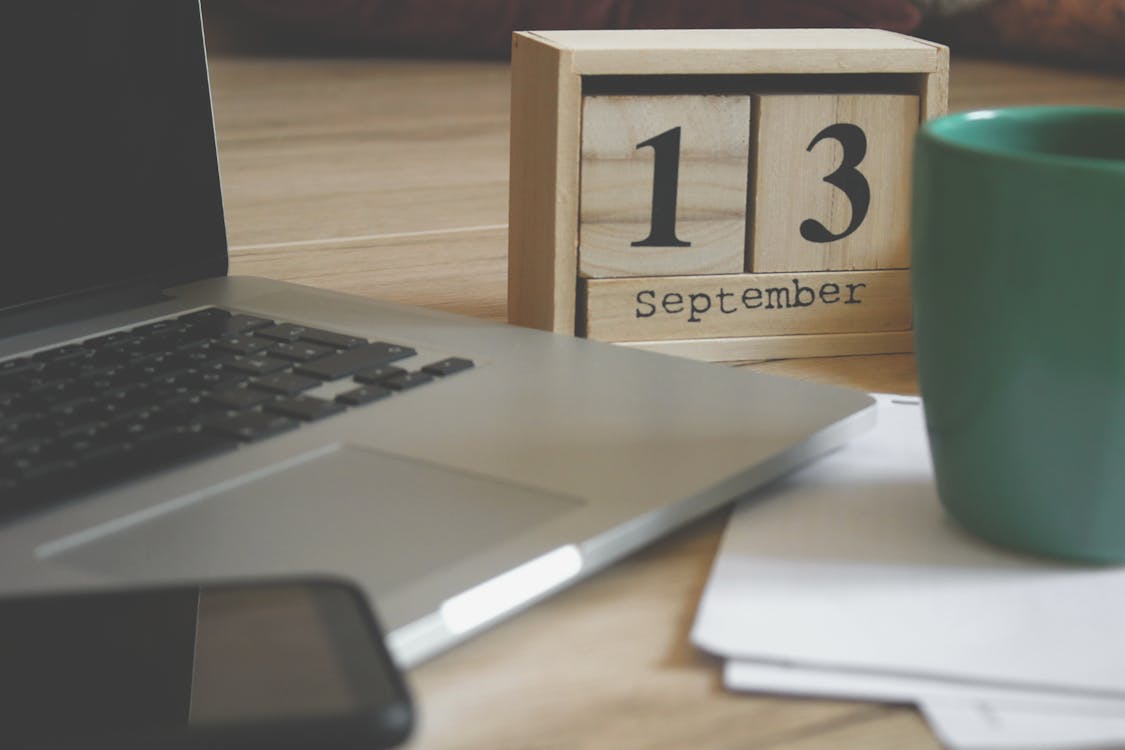How to Create a Daily Budget: Tips and Tricks for Success


We’re fortunate to earn money when you click on links to products or services we already know and love. This helps support the blog and allows us to continue to release free content. Read our full disclosure here.
So you think you have this money thing all figured out?
- You generally know what you spend and where.
- You set some money aside every month.
- You could afford a $400 emergency.
- Blah blah, coupon this, sale that.
Well, what if I told you there’s a dead-simple way to push yourself from the land of the okay-with-money to the stars and beyond?
Your daily budget has entered the chat.
With this simple habit, you’ll be able to save more and spend more (on what really matters).
Sound too good to be true? Well, it only works if you make it a habit.
Let’s break it down.
1. The Power of Tracking ✍️
Ever hear the phrase: “What gets measured gets managed”?
Well, it holds true for budgeting too. To create a daily budget, start by tracking your expenses. Get yourself a notepad, a pen, or better yet, try out a budgeting app like Vermillion. The act of recording each expense, including the item name, amount spent, and even when and where you made the purchase, triggers awareness and reflection.
Don’t believe me?
A budget is like a diet for your money in a lot of ways.
- Different budgets work for different people. But everyone has an opinion on what will work for you!
- An overly restrictive budget will almost always backfire.
- The right budget will keep you feeling satisfied!
Step 1: Track Your Daily Expenses
A budget is only useful as a yardstick. If you’re not able to say whether you’re under or overbudget, then your budget is worthless.
Start tracking your spending every day to give yourself a sense of how much money is coming and going.
Decide how much you want to be spending, and make that your goal.
2. The Science Behind Observation Bias 🔍
Ever notice how simply recording something can affect the outcome?
- We pose when we know someone is taking a picture.
- We use manners when other people are present.
- We eat healthier when we keep a food diary.
So it shouldn’t be a shock to learn that we save more when we record our expenses.
It’s called observation bias, and it plays a significant role in budgeting.
By tracking your expenses, you create a heightened sense of situational awareness. You become more conscious of how your spending choices impact your overall financial health. The more you observe and reflect on your expenses, the better you’ll become at making intentional financial decisions.
Makes sense, right?
Step 2: Reflect on Your Spending
Don’t just record your expenses and walk away. Look at them later!
Gauge whether your spending is in line with your budget, and whether you need to make any changes.
3. Be Prepared to Combat Decision Fatigue 😪
The grocery store is a perfect example of a place where decision fatigue can take over. How often do you find yourself impulsively adding items to your cart or throwing caution to the wind?
To combat this, start by preparing a grocery list and sticking to it. Plan your meals in advance and make a list of the items you truly need. By doing so, you can avoid being swayed by flashy displays or tempting offers. Remember, a little preparation goes a long way in saving both money and mental energy.
When setting your budget, decide ahead of time where you will and won’t be spending money.
- Are you taking a haitus from clothes shopping?
- No more restaurants while you’ve got food at home?
- Maybe festival month means guilt-free spending.
It’s your money, and you should get to decide how to spend it!
But if you don’t plan ahead of time, other people will pressure you (through sales or invitations or guilt trips) into making their priorities your priorities.
Plan ahead, and you’ll have your reason ready: “Sorry, that’s not in my budget."
Step 3: Plan Your Spending
Some expenses are unavoidable, like rent and utilities. But other are more malleable, like groceries and restaurant spending.
Give yourself an allowance to spend on certain areas and when you run out, stop spending.
It helps to think about this situation before it happens.
If someone invites you out for drinks at the end of the month, you can say: “Sorry, I’m trying to be a little more frugal. Maybe next time!"
4. Embrace the Zero-Sum Budgeting Approach 🎯
A zero-sum budget simply means:
- You will spend only the money you have available.
That’s it, that’s what it is.
Money going out = money coming in.
But this can be hard for a lot of reasons. Especially if you aren’t bringing in very much money! But the biggest factor is simply not knowing how much you spend.
To truly take control of your daily spending, consider adopting a zero-sum budgeting approach. Assign every dollar a purpose and keep a close eye on your budget categories.
Prioritize your spending based on what truly matters to you — whether it’s saving for a specific goal, investing in experiences, or building an emergency fund. Regularly check your budget category balances before making purchases, and let your budget guide your financial decisions.
Step 4: Keep Your Budget Up-to-Date
Keep updating your budget and tracking your expenses to make sure you’re not overspending.
Also start tracking your income to make sure your spending isn’t outpacing your earning!
Spending more money than you make is a quick road to debt.
5. Stay Focused on Your Intentions 💖
We all have financial goals and aspirations, but it’s easy to get distracted or overwhelmed by daily choices.
By recording each expense and regularly reviewing your budget, you create a consistent reminder of what truly matters to you. Each time you open your budgeting tool or flip open your notepad to record an expense, you’ll be greeted by a visual representation of your financial intentions.
It’s a simple act that can help you stay focused and make mindful decisions that align with your values.
Step 5: Set Ambitious Goals
Now that you know your head is above water, where should you go?
Where do you want to go?
Do you want to retire early, buy a house, or pay for a large wedding with an open bar? Then start putting money aside for your dream!
When times get hard, remind yourself what it’s all for.
Where should you start?
Creating a daily budget is not just about crunching numbers or restricting yourself.
It’s about gaining control of your finances, aligning your spending with your values, and ultimately achieving financial well-being. By implementing the tips and tricks mentioned in this blog post—tracking your expenses, leveraging observation bias, combating decision fatigue, embracing zero-sum budgeting, and staying focused on your intentions—you’ll be well on your way to financial success.
So, grab that notepad, open that budgeting app, and take the first step towards creating a daily budget that empowers you to live a financially conscious and fulfilling life.
Related Posts

What Is A Personal Savings Rate And Why Does It Matter?

Savings Rate 101: The Key Metric for Achieving FIRE





